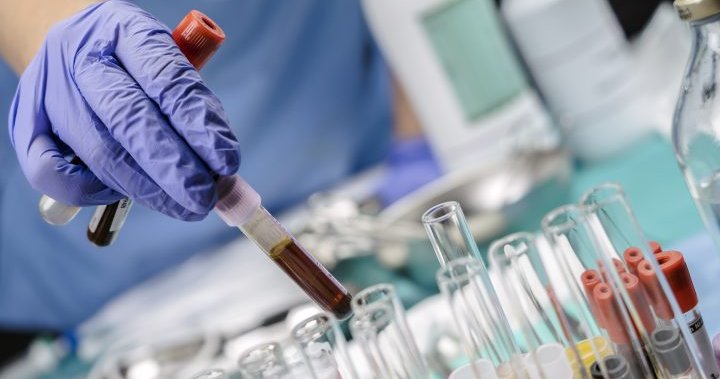Are female blood donors riskier than men? A new study challenges past fears | Globalnews.ca
Patients who receive blood donations face no greater risk of death whether the blood comes from a man or a woman, according to new research that is challenging long-held assumptions.
A study published in the New England Journal of Medicine Wednesday found there was no difference in the overall survival rates between recipients of male donor blood and recipients of female donor blood.
Until now, the thinking has been that those who get female donor blood may face a higher risk for a number of reasons.
Read more:
Blood donation ban on men who have sex with men can end, Health Canada says
The clinical trial conducted at The Ottawa Hospital enrolled roughly 9,000 patients over a two-year period from 2018 to 2020.
“Our randomized trial determined that there actually is no difference between male and female donor blood across the board … in all types of recipients, from surgical to medical to ICU to outpatient patients,” said Dr. Dean Fergusson, senior scientist at The Ottawa Hospital and professor at the University of Ottawa.
Some previous observational studies have suggested that there is a higher risk of death following blood transfusions from women, especially those who have a history of pregnancy, compared to men.
Fergusson, who co-authored the NEJM study, said it was thought that differences in hormone levels, antibodies and iron levels would result in a greater benefit from receiving male blood over female blood.
The hypothesis is that previous pregnancies that carry over antibodies to the blood could impact the immune response of the recipient as well as the inflammatory response from receiving blood, he said.

However, the results of the trial, which also included pregnant people, suggested otherwise.
“We saw no difference,” Fergusson said, adding that the study helps keep the “status quo” when it comes to blood donor collection in Canada.

Based on their findings, the donor collection policies should remain the same, Fergusson said.
According to Canadian Blood Services, first-time blood donors must be at least 17 years old and in good general health.
Read more:
‘Supplies are tight’ — Canadian Blood Services concerned about current inventory
Those who are most at risk from donating blood are young people aged 17 to 25, menstruating women and frequent donors, CBS says on its website.
Pregnant people are not eligible to donate blood in Canada.
Last year, the agency expanded eligibility for donors in the country, eliminating a long-standing ban in September on men who have sex with men.
Instead, all donors, regardless of gender or sexual orientation, are now asked if they’ve had new and/or multiple sexual partners in the last three months.
In October, the agency also shortened the waiting period for acupuncture patients to be able to give blood and removed a lifelong ban for sex workers.
© 2023 Global News, a division of Corus Entertainment Inc.
For all the latest health News Click Here




